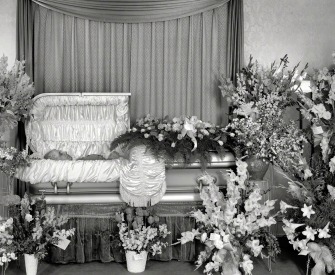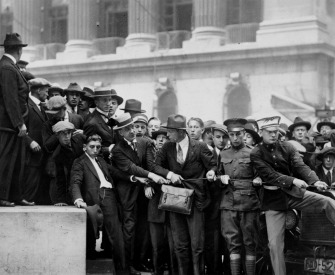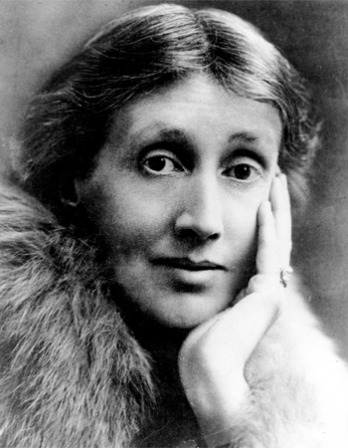Because of the general Agrippa’s humble origin, Gaius Caligula loathed being described as his grandson and would fly into a rage if anyone mentioned him, in speech or song, as an ancestor of the Caesars. He nursed a fantasy that his mother had been born of an incestuous union between Augustus and Julia. He called his great-grandmother Livia Augusta a “Ulysses in petticoats,” and in a letter to the senate he dared describe her as of low birth—“her maternal grandfather Aufidius Lurco having been a mere town councilor from Fundi”—although the public records showed Lurco to have held high office at Rome. When his paternal grandmother Antonia begged him to grant her a private audience, he insisted on taking Macro, the praetorian prefect, as his escort. Unkind treatment of this sort hurried her to the grave, though according to some he accelerated the process with poison; and when she died, he showed so little respect that he sat in his dining room and watched the funeral pyre burn. He sent a military tribune to kill his cousin, young Tiberius, without warning, on the pretext that Tiberius had insulted him by taking an antidote against poison—his breath smelled of it—and he forced his father-in-law, Marcus Silanus, to cut his own throat with a razor, the charge being that he had not followed him when he put to sea in a storm but had stayed on shore to seize power at Rome if anything happened to him. The truth was that Silanus, a notoriously bad sailor, could not face the voyage—and young Tiberius’ breath smelled of medicine taken for a persistent cough which was gaining a hold on his lungs. Gaius preserved his uncle Claudius mainly as a butt for practical jokes.
It was his habit to commit incest with each of his three sisters in turn, and at large banquets, when his wife reclined above him, placed them all in turn below him. They say that he ravished his sister Drusilla before he came of age: their grandmother Antonia, at whose house they were both staying, caught them in bed together. Later, he took Drusilla from her husband, the former consul Lucius Cassius Longinus, quite unashamedly treating her as his wife; when he fell dangerously ill, he left her all his property, and the empire too. At her death he made it a capital offense to laugh, to bathe, or to dine with one’s parents, wives, or children while the period of public mourning lasted, and he was so crazed with grief that he suddenly rushed from Rome by night, drove through Campania, took ship to Sicily, and returned just as impetuously, without having shaved or cut his hair in the meantime. Afterward, whenever he had to take an important oath, he swore by Drusilla’s godhead, even at a public assembly or an army parade. He showed no such extreme love or respect for the two surviving sisters and often, indeed, let his toy boys sleep with them; and at Aemilius Lepidus’ trial he felt no compunction about denouncing them as adulteresses who were party to plots against him—openly producing letters in their handwriting (acquired by trickery and seduction) and dedicating to Mars Ultor the three swords with which, the accompanying placard alleged, they had meant to kill him.
It would be hard to say whether the way he got married, the way he dissolved his marriages, or the way he behaved as a husband was the most disgraceful. He attended the wedding ceremony of Gaius Piso and Livia Orestilla, but had the bride carried off to his own home. After a few days, however, he sent her away, and two years later he banished her, suspecting that she had returned to Piso in the interval. According to one account, he told Piso, who was reclining opposite him at the wedding feast, “Hands off my wife!” and took her home with him at once, and announced the next day that he had taken a wife in the style of Romulus and Augustus. Then he suddenly sent to the provinces for Lollia Paulina, wife of Gaius Memmius, the consular army commander, because somebody had remarked that her grandmother was once a famous beauty; but he soon discarded her, forbidding her ever again to sleep with another man. Caesonia was neither young nor beautiful and had three daughters by a former husband, besides being recklessly extravagant and utterly promiscuous, yet he loved her with a passionate faithfulness and often, when reviewing the troops, used to take her out riding in helmet, cloak, and shield. For his friends he even paraded her naked, but he would not allow her the dignified title of wife until she had borne him a child, whereupon he announced the marriage and the birth simultaneously. He named the child Julia Drusilla and carried her around the temples of all the goddesses in turn before finally entrusting her to the lap of Minerva, whom he called upon to supervise his daughter’s growth and education. What he regarded as the surest proof of his paternity was her violent temper: while still an infant, she would try to scratch out her little playmates’ eyes.
© 1957 by Robert Graves. Used with permission of Carcanet Press.
From Lives of the Caesars. Born Gaius Caesar in 12, Caligula as a boy received his nickname, meaning “Little Boot,” from the soldiers serving in the legions his father Germanicus commanded. Becoming emperor at the age of twenty-five, he distinguished himself as a despot by killing the prefect of the praetorian guard in 38 and ordering the construction of a bridge of ships stretching across the Bay of Naples—a distance of almost two miles—in 39. After a few conspiratorial plots, a tribune of the praetorian guard assassinated Caligula in 41.
Back to Issue




